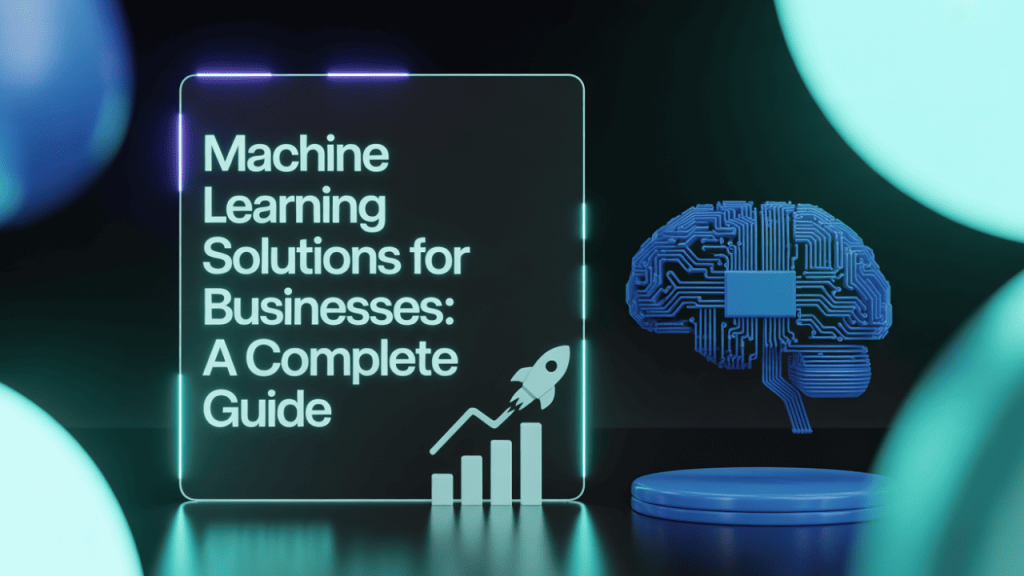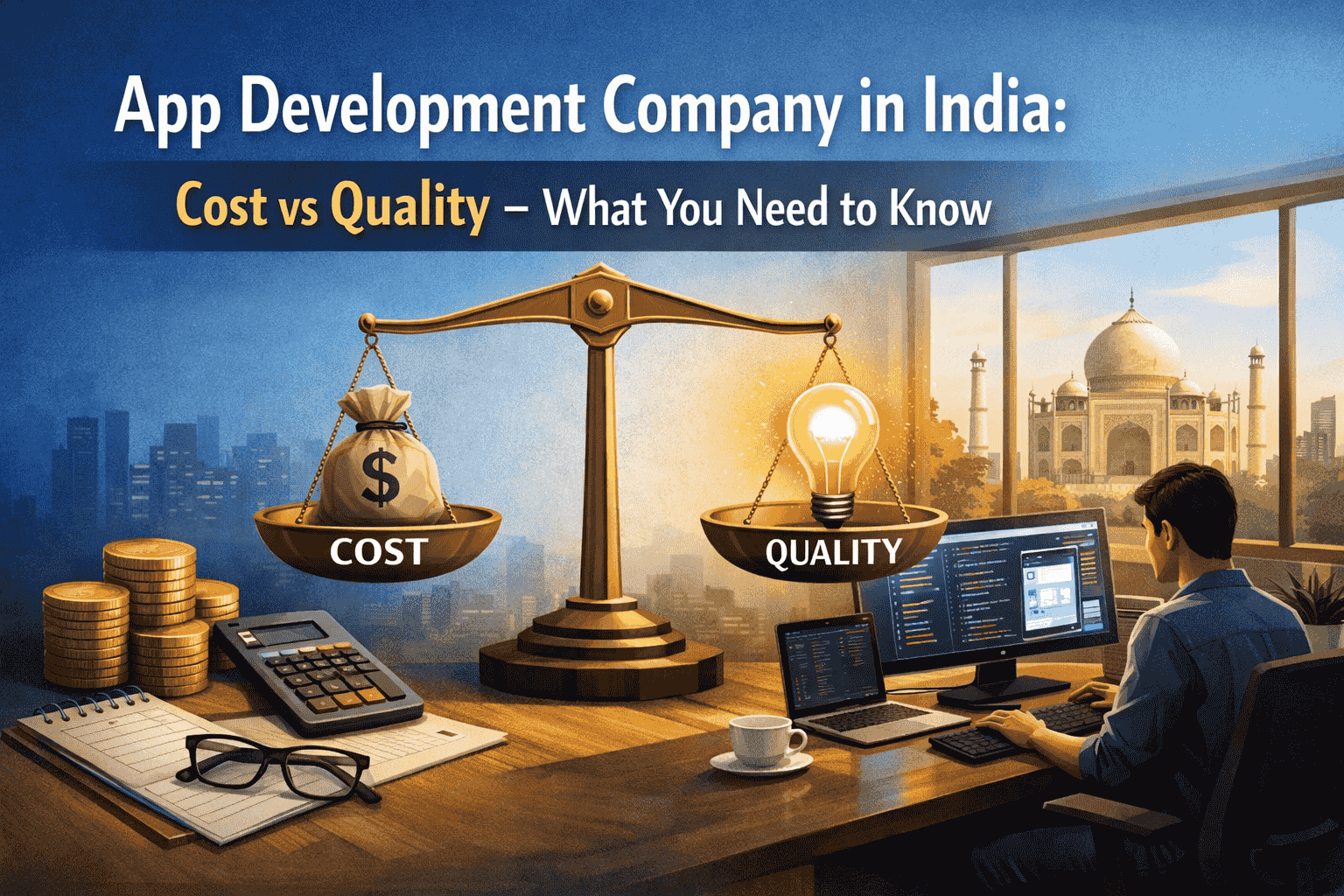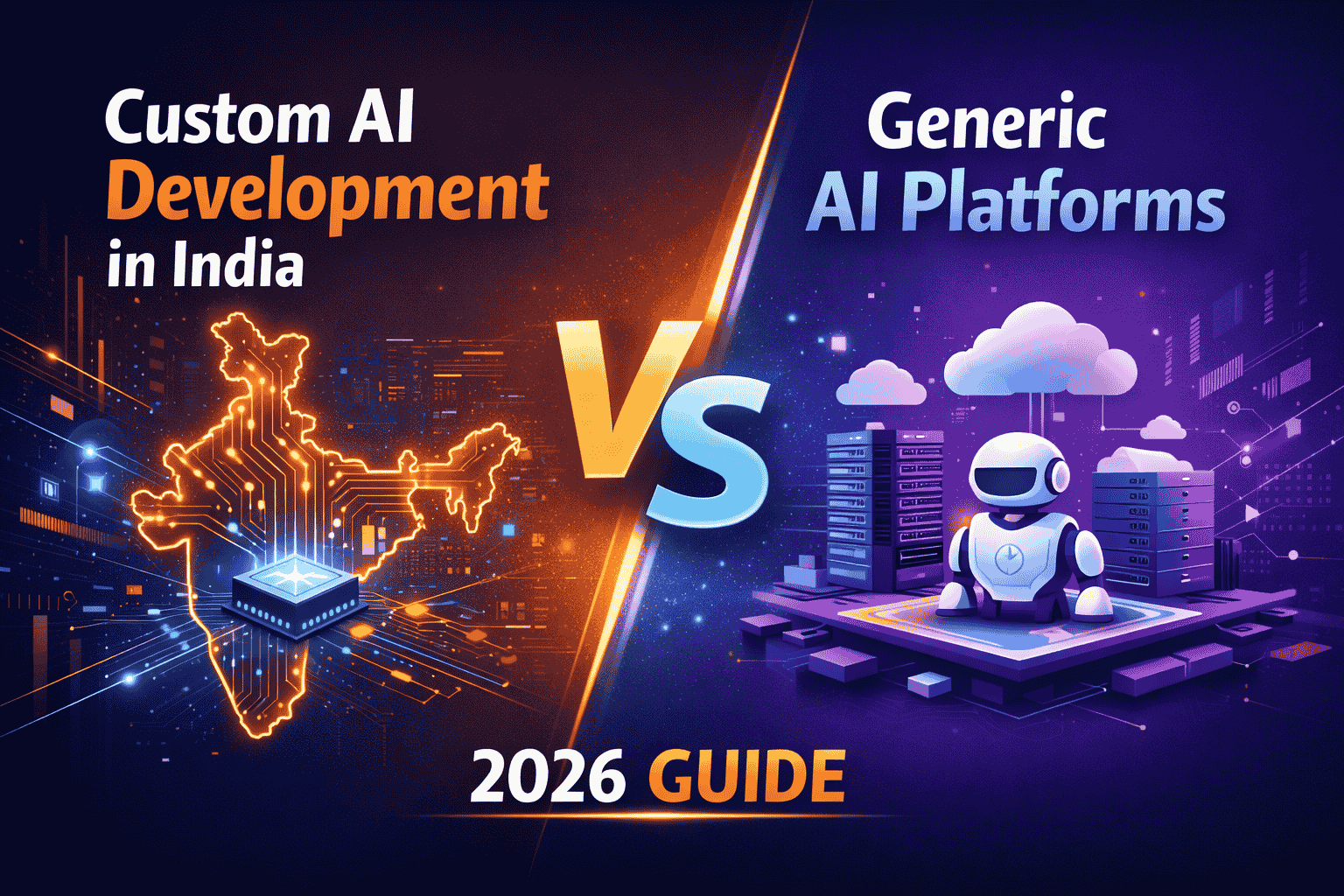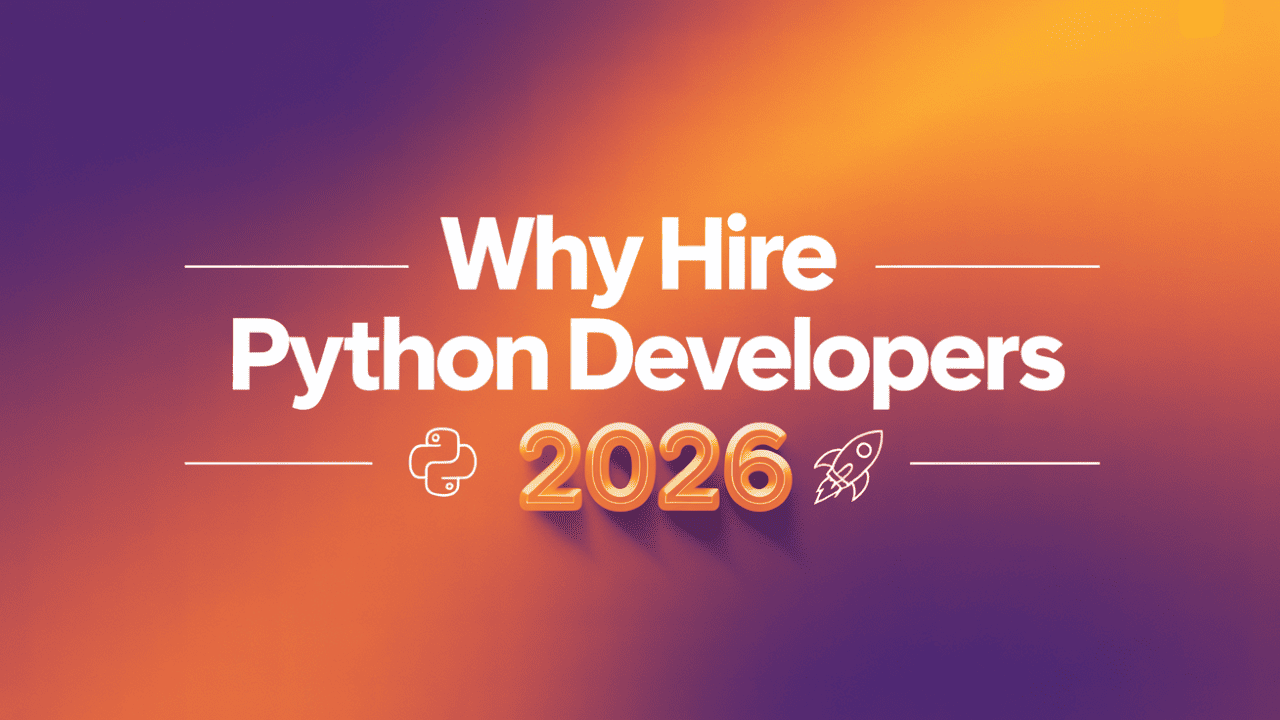Several companies gather loads of data every day; however, few of them exactly know how to turn it into something genuinely useful. That’s exactly where machine learning solutions for business really make a real difference.
Rather than being dependent on instinct or outdated reports, ML actually studies patterns in real-time, predicts what might happen next, and ultimately helps teams make decisions that actually move results.
No matter if a company wants clearer sales forecasts, better customer insights, or even smoother operations, machine learning is here to bring practical advantage. It converts scattered data into meaningful guidance that supports growth, boosts efficiency, and keeps decisions sharp and timely.
Table of Contents
ToggleWhat Machine Learning Solutions for Businesses Actually Mean?
Although machine learning may seem complicated, its basic principle is simple. Rather than depending on predetermined rules, it allows systems to learn from data. Conventional automation works only if you give it precise instructions. The system becomes illogical if anything changes. This limitation does not apply to business machine learning solutions. They identify trends, make their own adjustments, and get better as more data becomes available.
Because of this, businesses use machine learning (ML) to solve practical issues like demand forecasting, fraud detection, customer behavior analysis, and manual labor reduction. A machine learning model can identify patterns you might miss and provide more precise, better decisions than a rule-based system, which can only follow instructions.
It transforms routine data into insightful information that helps companies move more quickly, make less errors, and remain in step with evolving customer demands.
How ML Turns Raw Data Into Smarter Business Decisions?
Business applications of machine learning use a simple, repeatable loop to transform jumbled data into decisions that are clear. When you break it down step by step, it becomes clear why machine learning works where traditional approaches don’t.
- Data Collection
This is where it all begins. Gather all of your transactional data, including sales records, customer clicks, sensor readings, support tickets, and inventory logs. The objective is pragmatic: collect clean, pertinent signals that represent the issue you wish to resolve. Good models come from good inputs.
- Finding Patterns
ML searches for connections and hidden patterns that people frequently overlook. It links actions to results, detects rare fraud signals, groups similar customers, and determines seasonality in demand. Raw data becomes meaningful intelligence at this point.
- Prediction
After learning patterns, the model forecasts future occurrences, such as which product will sell out, who will churn, or the level of risk associated with a transaction. Teams benefit from predictions’ foresight rather than hindsight.
- Automates Processes
Only when they inspire action do predictions have any real significance. ML can automatically personalize offers, modify inventory orders, send high-risk transactions for review, and initiate emails. Response times are accelerated and less manual labor is required.
- Constant Enhancement
Models aren’t “set and forget.” As new information becomes available, they improve. To ensure that decisions remain accurate over time, track performance, retrain using new data, and adjust for shifting circumstances.
Because it is measurable, scalable, and directly linked to improved decision-making, this step-by-step loop is what makes machine learning solutions for businesses viable.
Key Machine Learning Solutions Businesses Use Today
There are numerous types of machine learning solutions for businesses, and each one enhances performance in a unique way. Here’s how businesses can work more efficiently and expand more quickly with the most popular machine learning solutions.
- Demand and Sales Prediction Analytics
This enables businesses to more accurately predict future sales through analysis of historical trends, consumer behavior, and seasonal patterns. Instead of responding at the last minute, teams stay prepared, plan more effectively, prevent stockouts, and handle budgets more effectively.
- Customer segmentation and behavior prediction
Targeting is made simpler by customer segmentation and behavior prediction machine learning, which groups customers according to their preferences, interests, as well as tendency to purchase. By knowing what different customer groups genuinely want, businesses can improve conversions, deliver more relevant messages, and cut down on marketing waste.
- Supply chain and inventory optimization
In order to maintain the proper inventory levels, machine learning examines vendor performance, demand fluctuations, and stock movement. It speeds up fulfillment, cuts down on excess inventory, avoids shortages, and maintains a seamless as well as economical supply chain overall.
- Risk assessment and fraud detection
Real-time machine learning examines risk indicators, transaction behavior, and odd patterns. By doing this, companies can prevent losses, safeguard consumer confidence, identify suspicious activity early, and maintain more secure financial operations without impeding legitimate transactions.
- Machine learning-based recommendation systems
Based on each user’s preferences and previous behavior, these systems make recommendations for goods or content. They encourage customers to stay longer and explore more through improving engagement, increasing repeat business, and providing a more personalized experience.
Real World Examples: How Different Industries Use ML to Grow Faster
- Retail: Retail forecasts demand, maximizes stock, and customizes deals to increase conversions.
- Finance: Finance enhances credit scoring for safer approvals and immediately flags fraud.
- Medical Care: helps make better treatment decisions, reads scans more quickly, and identifies risks early.
- Logistics: Logistics arranges delivery routes, accounts for delays, and ensures that shipments arrive on schedule.
- Manufacturing: Manufacturing minimizes downtime by identifying equipment problems prior to breakdowns.
- Real Estate: Real estate matches buyers with appropriate listings and makes accurate property value estimates.
- SaaS: SaaS companies increase feature adoption, personalize onboarding, and forecast churn.
Benefits of Machine Learning Solutions for Businesses
- Faster Decision-Making
Businesses that use machine learning solutions for their operations gain immediate access to lucid insights. Instead of waiting for lengthy manual analysis, teams can act more quickly thanks to ML models’ rapid scanning of large datasets.
- Increased Efficiency
ML solutions eliminate back-and-forth work, automate repetitive tasks, and streamline procedures. Employees can now devote more time to strategy, innovation, and customer interactions that truly add value.
- Lower Operating Expenses
Workflows powered by AI reduce errors, save labor hours, and make better use of resources. These machine learning solutions gradually reduce operating expenses without compromising quality.
- More precise projections
Trends and changes that are frequently missed in traditional reporting are identified by predictive models. This enhances marketing performance, demand planning, inventory, sales forecasting, and even financial projections.
- Improved client satisfaction
Businesses can interact with customers in a way that feels more relevant and beneficial by implementing personalized journeys, fast support systems, and recommendations driven by machine learning.
- Increased profitability
Profitability naturally increases as efficiency increases, costs decrease, and customer satisfaction increases. Business machine learning solutions contribute to this growth’s consistency and scalability.
ML Solutions for Small and Mid Sized Businesses: The Most Ignored Segment
Machine learning is often thought of as something that only large corporations can afford by small and mid-sized businesses, but the distinction is actually quite obvious. While SMBs can begin using basic machine learning tools that function even with small amounts of data, large corporations rely on sophisticated models and massive datasets.
These tools automate processes such as lead scoring, restocking alerts, basic demand prediction, and customer support responses, eliminating the need for human intervention.
SMB-friendly ML solutions are much more accessible because they are integrated into chatbot platforms, POS systems, and CRMs, whereas enterprise systems require large budgets. The end result is useful information that reduces time and effort and gives smaller teams greater confidence when making decisions.
How Mypcot Designs Custom Machine Learning Solutions for Businesses?
Mypcot actually takes a straightforward, business focused approach in order to build custom machine learning solutions for businesses. The concept is just simple: understand what exactly the company needs, utilize the right data, and create an ML system that delivers real, measurable impact. Now, this keeps the process practical, cost-friendly, and completely aligned with everyday operations rather than overwhelming teams with technical complexity.
Here’s how Mypcot handles it:
Business goal assessment
Properly understanding your challenges and defining where exactly ML can create immediate value.
- Data evaluation: Verifying your available data, removing noise, and preparing clean inputs for accurate results.
- Model development: Designing ML models for prediction, segmentation, automation, or even behavior analysis based on your particular use case.
- Testing and deployment: Ensuring the solution works smoothly in real conditions and integrating it into your existing systems.
- Ongoing optimization: Monitoring performance and improving the model as your business evolves.
- Monitoring performance: Sharing easy-to-understand insights so your team knows exactly how the ML solution supports decisions and efficiency.
Conclusion
Businesses that wish to improve customer experiences, streamline operations, and make more informed decisions must now implement machine learning solutions. ML transforms raw data into actionable intelligence that produces tangible outcomes, from process automation and risk management to predictive analytics and customer insights.
Adopting these solutions can increase profitability, cut expenses, and improve efficiency for companies of all sizes.
Mypcot gives businesses a partner that creates customized machine learning solutions, enabling them to fully utilize their data while maintaining an easy-to-implement and results-oriented approach.











